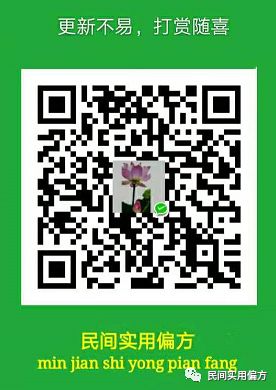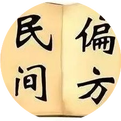Pills
Pills are further divided into honey pills (large and small honey pills, water honey pills), water pills, concentrated pills, wax pills, and drop pills. Small pills can be taken with warm water, while large honey pills cannot be swallowed whole and should be chewed or broken into smaller pieces before being taken with warm water. If the water pills are hard, they can be dissolved in boiling water before consumption. Examples include honey pills: Wu Ji Bai Feng Wan (Black Chicken White Phoenix Pill), water honey pills: Bu Shen Yi Chang Wan (Kidney Tonifying and Intestinal Benefiting Pill), water pills: Xiao Yao Wan (Free and Easy Wanderer Pill), concentrated pills: Niu Huang Jie Du Nong Su Wan (Cattle Gallbladder Detoxifying Concentrated Pill), wax pills: Fu Ke Tong Jing Wan (Gynecological Menstrual Regulation Pill), and drop pills: Fu Fang Dan Shen Di Wan (Compound Salvia Drop Pill).
Additionally, some TCM pills can enhance their efficacy by being taken with medicinal drinks. For instance, when taking Huo Xiang Zheng Qi Wan (Agastache Correcting Qi Pill) or Fu Zi Li Zhong Wan (Aconite Middle-Strengthening Pill) for treating stomach pain and vomiting, ginger decoction can be used to enhance the effect; for dysmenorrhea patients taking Ai Fu Nuan Gong Wan (Mugwort and Aconite Warming the Uterus Pill), warm brown sugar water can be used to enhance the warming and blood-activating effects of the medicine; when taking Bu Zhong Yi Qi Wan (Middle-Strengthening and Qi-Boosting Pill) for chronic enteritis, jujube decoction can be used to enhance the spleen-tonifying and qi-boosting effects; and when taking Da Huo Luo Wan (Great Activating Pill) for stroke sequelae and facial asymmetry, yellow wine can be used to enhance the blood-activating and meridian-opening effects of the medicine.
Powders
Generally, powders can be taken with honey or medicinal juice, or they can be encapsulated in capsules to avoid direct swallowing, which may irritate the throat. However, there are special methods, such as the warming and pain-relieving powder—Wei Huo San (Stomach Activating Powder), which does not require water for consumption and can be licked directly to allow the medicine to stay in the stomach longer for therapeutic effects; it is advisable to wait an hour after taking it before drinking water.
Pastes
Pastes should be taken with boiling water, avoiding direct pouring into the mouth to prevent choking. An example is Ba Zhen Yi Mu Gao (Eight Treasures and Mother Paste).
Granules
Granules (dissolvable powders) should be taken with warm water; they can be classified into soluble, suspended, and effervescent types. When taking suspended granules, any undissolved particles should also be consumed to avoid affecting efficacy; however, effervescent granules should only be taken after being dissolved in water, and should not be taken directly into the mouth. Examples of soluble granules include Gan Mao Qing Re Granules (Cold and Heat Clearing Granules) and Ban Lan Gen Granules (Isatis Root Granules).
Syrups and Oral Liquids
These can be taken directly, such as Ji Zhi Tang (Acute Cough Syrup) and Qing Re Jie Du Oral Liquid (Heat-Clearing and Detoxifying Oral Liquid).
Tablets
Generally, they should be taken with warm water. Chewable tablets should be chewed, and are not suitable for children under four years old; lozenges, such as Cao Shan Hu Lozenges, should be dissolved in the mouth, making them unsuitable for infants and young children to avoid choking hazards. However, enteric-coated tablets, sustained-release tablets, and controlled-release tablets should be taken whole with warm water, and should not be broken to avoid affecting efficacy.
Capsules
These should be taken whole with warm water. The encapsulation of Chinese medicine is primarily to enhance the stability of the medicine, mask unpleasant odors, and improve clinical efficacy, so it is crucial not to remove the capsule shell before taking. Some capsules are designed for targeted release and absorption, such as Xiao Shuan Chang Rong Jiao (Thrombus-Resolving Enteric Capsule).
Aerosols
When using, the medication should be sprayed directly into the mouth. These types of TCM are mainly used for cough relief, asthma control, or awakening the mind. Since they are absorbed through the oral mucosa, they should not be taken orally. An example is Fu Fang Dan Shen Qi Wu Ji (Compound Salvia Aerosol).
Gels
For gels such as Ejiao (Donkey-hide Gel), Lu Jiao Jiao (Deer Antler Gel), and Gui Ban Jiao (Tortoise Shell Gel), they can be taken with yellow wine or sugar water, and heated in a water bath to dissolve (also known as melting) before consumption.
Teas and Tea Bags
These should be steeped in boiling water and taken frequently, similar to drinking tea. An example is Wu Shi Cha (Midday Tea).


